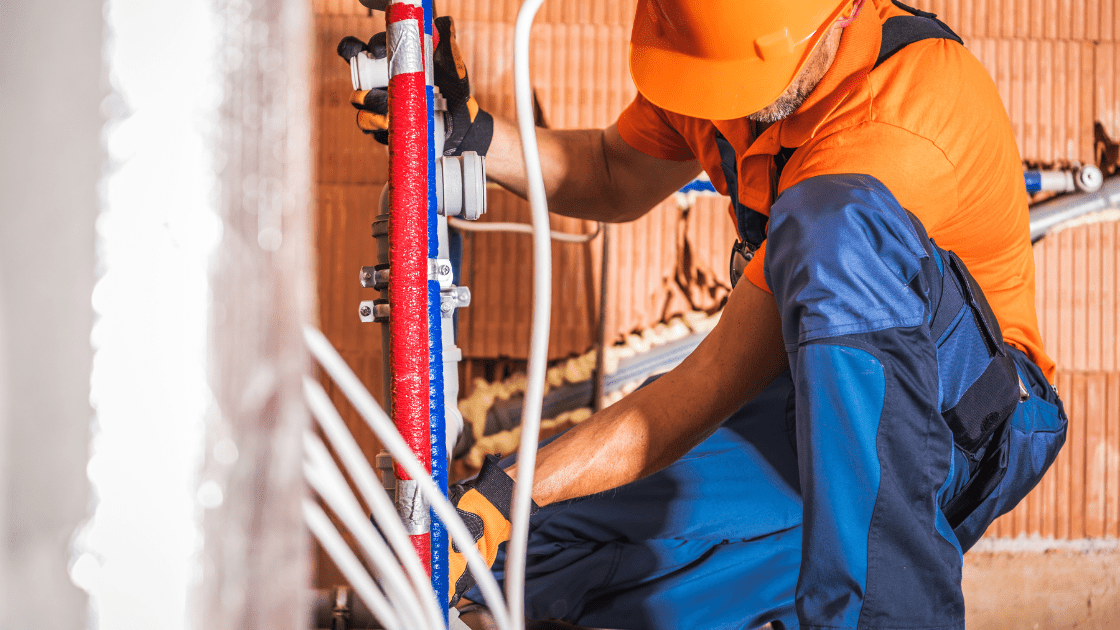
When thinking about buying or selling a home, concerns about plumbing may not be at the top of your list. However, the importance of a home’s piping system cannot be overstated – it’s a vital aspect that underpins the functionality and health safety of a home. Among the types of plumbing, galvanized piping is a common one you’re likely to come across. But what does it mean for your home’s value, and will you have to replace it? Read on to find out.
What is galvanized plumbing?
Galvanized plumbing refers to a type of plumbing system where pipes are coated with a layer of zinc. This process, known as galvanization, is designed to prevent the pipes from rusting. It became popular due to its cost-effectiveness and long lifespan compared to other materials available at the time.
When was galvanized plumbing used?
Galvanized plumbing was most commonly used in the United States from the early 1900s to the 1960s. It was the go-to choice for builders and contractors due to its durability and affordability. If your home was built during this period, it may have galvanized plumbing.
Why is galvanized plumbing no longer used?
Despite its initial advantages, galvanized plumbing has its drawbacks. Over time, the zinc coating can corrode and wear off, leading to rusting pipes and potential lead contamination. Modern building codes now require the use of safer and more durable materials like copper or PVC, phasing out the use of galvanized pipes in new construction homes.
Is it a bad idea to buy a home with galvanized plumbing?
It’s not inherently a bad idea to buy a house with galvanized plumbing, but it does come with potential challenges you should be aware of. Older galvanized pipes may be nearing the end of their lifespan and could be at risk of corroding or leaking. This could necessitate expensive plumbing replacements, which should be factored into the home-buying decision or offer.
Is it safe to drink water from the tap in homes with galvanized plumbing?
Water from galvanized plumbing is generally safe to drink, provided the pipes are in good condition. However, as these pipes age and the zinc layer erodes, the underlying iron or steel can rust, causing discolored, metallic-tasting water. This is not only unpleasant but can also stain laundry and fixtures. Most importantly, in some rare cases, lead solder used to join old galvanized pipes can corrode, possibly leading to lead contamination, a serious health risk. Regular water quality tests are a prudent step if you live in a home with old galvanized plumbing.
How do you tell if a home has galvanized plumbing?
Identifying galvanized pipes isn’t overly complicated. These pipes have a characteristic silver-grey appearance. However, they might appear rusty or discolored as they age and corrode. A magnet can also be helpful, as it sticks to galvanized steel pipes but not to copper or plastic ones.
When does galvanized plumbing need replacing?
Galvanized plumbing typically needs replacing after about 40-50 years. However, this can vary based on factors like water quality and pipe usage. (Poor quality may only last 30 years, while high quality could last up to 70.) Signs that your pipes may need replacing include discolored water, reduced water pressure, or visible corrosion on the pipes.
How much does it cost to replace galvanized plumbing?
The cost of replacing galvanized plumbing depends on the size of the home and the extent of the plumbing, but it can range from $2,000 to upwards of $15,000. While the cost to replace galvanized plumbing can range widely, you should also be aware of your options for replacement. Copper and PEX (cross-linked polyethylene, a plastic) are popular choices, each with its advantages. Copper is long-lasting and resistant to corrosion, while PEX is flexible, easy to install, and resistant to scale and chlorine. Consult with a licensed plumber to determine the best option for your home.
Is copper plumbing the same as galvanized plumbing?
No, copper plumbing and galvanized plumbing are different. Copper pipes are more expensive but have the advantage of being corrosion-resistant, providing clean water, and lasting longer. They’re now the preferred choice in modern residential plumbing.
Is cast iron plumbing the same as galvanized plumbing?
Like copper, cast iron plumbing is not the same as galvanized plumbing. Cast iron pipes are durable and can effectively reduce noise, but they are more commonly found in larger waste-water lines, rather than supply lines.
How do I sell a house with galvanized plumbing in Massachusetts?
Selling a home with galvanized plumbing in Massachusetts isn’t fundamentally different from selling any other home. Full disclosure about the property’s condition is critical. Keep in mind that some potential buyers might be cautious due to the possible need for future pipe replacement, and so may adjust their offer to reflect this need. A professional home inspection and valuation can guide you on the best pricing strategy.
While galvanized plumbing was once the industry standard, today’s homeowners must understand the potential issues that may arise from these older systems. Whether you’re buying or selling, knowing about your home’s plumbing can save you time, money, and a lot of stress.
However, if the prospect of dealing with galvanized plumbing issues feels overwhelming, remember that we’re here to help. We are a professional house-buying company that purchases homes in as-is condition, flaws and all. If you’d like a cash offer on your Massachusetts home, simply contact us with a few details. We’re ready to make your home-selling process as easy and seamless as possible.
To find out more or to get an offer on your home, click here.

